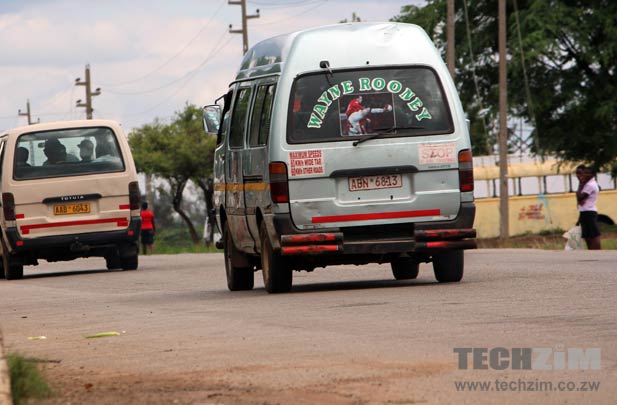 When Econet introduced the option for people to use the EcoCash mobile money to pay for their kombi (name for minibus in Zimbabwe) fares, the unanswered question was if the service would penetrate the highly chaotic public transport. The question was eventually answered ofcourse; the kombi chaos was not about to be disrupted.
When Econet introduced the option for people to use the EcoCash mobile money to pay for their kombi (name for minibus in Zimbabwe) fares, the unanswered question was if the service would penetrate the highly chaotic public transport. The question was eventually answered ofcourse; the kombi chaos was not about to be disrupted.
What is the chaos you may ask. Essentially, the owners of the kombis have limited oversight on the operations of their kombis. Operational control is with the rank touts and the kombi crew. It is so up to these 2 parties that it is a common arrangement for the kombi owner to just get a flat daily payment for his kombi. $100 say. Almost as if the crew are renting the kombi from the owner. And because the crew has the leeway to do whatever it takes to hit that target and then make some cash for themselves. Electronic payments would make things transparent, an objective the tout and crew are definitely not seeking.
The proposed kombi ban promises an end to some of this chaos. Whatever reasons the authorities have for the ban – and corruption theories are abound – if this brings some public transport order, the mobile money operators may have the opportunity to get into it again and probably succeed this time.
In Kenya, the place local mobile money operators get all their mobile money tips, has the same chaos problem, and they are solving it in some interesting ways. They didn’t ban the kombis (called Matatus there). Instead, the government just banned cash payments in Matatus. New regulations require all Public Service Vehicles (PSV) use a cashless fare system beginning July 1 this year, and reports indicate the positive results are already showing for the mobile payments service providers. The biggest winner is ofcourse the government itself. Electronic payment means It will be able to account for all this money exchanging hands daily, something they were last able to do some time back in the early 90s ZUPCO days.
The kombi ban in Zimbabwe is publicly being resisted with some citing the loss of jobs for the crews and touts. That’s an argument for another day. My thoughts are that the impact of such a ban on the country is positive. The problem of course, like most things government, is that it’s never clear what the true motive behind the ban is
But still, the mobile money operators would be wise to come together and lobby for the new order to factor in electronic payments.

4 comments
Well less robberies and thieving.
You think? And the surge of unemployed unruly hwindis n drivers n touts?
Where do u think they’ll go….?
Let me guess,they’ll quietly accept their new fates and sit at home and marvel at the passing buses
Though it is a digression, I wonder why ZUPCO didn’t take over. Creating jobs with the possibility of training and absorbing some of the newly unemployed.
Now some “random” company has been assigned that lucrative business with no due process and with the pretence that there is no ZUPCO.
Welcome to Zimbabwe. Land of thieves and the oppressed.
Understanding the chaotic and disruptive nature of kombis in our cities, has they been a proper strategy developed to cope with the number of passengers that this industry was servicing? Bringing order is good fair and fine, but if they is no sustainable and efficient strategy setup and tested, this will just see the kombis returning back with full force after the ban. I hope the government is not just rushing to point out that our systems are broken, all can see that. Give us solutions, not theories and pie-in-the-sky politcking.
i can smell a rat here, just wait and see, only well connected individuals are going to get even more fatter here